Here are some Resources, Submissions and Projects available to download and use.
There are additional resources available on the Community Law website
There are additional resources available on the Community Law website
The Education Act 1989 has recently been repealed and replaced by the Education and Training Act 2020 (see http://www.legislation.govt.nz/act/public/2020/0038/latest/LMS170676.html.) YouthLaw is in the process of updating this page to reflect the new law. Please be aware that the law, as stated on this webpage, may not be current. If you need advice, please email legal@youthlaw.co.nz or call us for free on 0800 884 529.
The following leaflets are available for download:
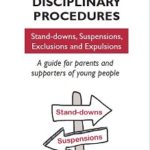
A4 foldable brochure. 444kB
DOWNLOAD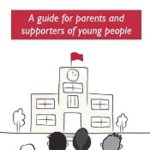
A4 foldable brochure. 746kB
DOWNLOAD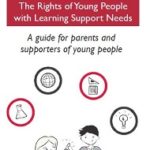
A4 foldable brochure. 472kB
DOWNLOAD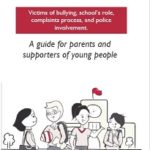
A4 foldable brochure. 601kB
DOWNLOAD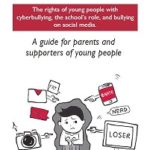
A4 foldable brochure. 603kB
DOWNLOAD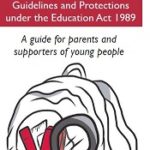
A4 foldable brochure. 549kB
DOWNLOADThe Education Act 1989 has recently been repealed and replaced by the Education and Training Act 2020 (see http://www.legislation.govt.nz/act/public/2020/0038/latest/LMS170676.html.) YouthLaw is in the process of updating this page to reflect the new law. Please be aware that the law, as stated on this webpage, may not be current. If you need advice, please email legal@youthlaw.co.nz or call us for free on 0800 884 529.
YouthLaw has developed Youth Law 101: Rights Education Toolkit which is a series of interactive, short and relevant workshops for school leaders (year 13 prefects, head of house etc.) to deliver to year 10 to year 13 students. You can download content from below or contact us for the hard copy version with the video DVD.
This is the video that goes with the Toolkit.
Barriers to Education in New Zealand: The Rise of Informal Removals of Students in New Zealand,
Jen Walsh, 2016
This research examines barriers to inclusive education in New Zealand. Inclusive education refers to the ability of students to access and gain the benefits of a right to education. Our research aimed to gain a snapshot of student experiences in order to assess whether barriers to inclusive education existed in New Zealand. In particular, we sought to investigate the phenomena known as “kiwi suspension” or illegal suspensions where students are covertly encouraged to withdraw from school. One of our primary goals was to provide a basis to indicate where there may be need for further research to assess the scale and frequency of any identified barriers to education. A secondary goal was to assess our findings and propose potential ameliorative law reform. For a copy of the report, email admin@youthlaw.co.nz
Challenging The Barriers: Ensuring Access To Education For Children With Special Educational Needs,
Kenton Starr and Naushyn Janah, 2016
The 2013 Statistics New Zealand Disability Survey found that around 24% of children with disabilities have an unmet need for help with their schoolwork in class, about 13% have an unmet need for special equipment to help with their learning and about 28% have an unmet need for adapted classroom materials. The survey also found that because of their disability – around 20% of children with a disability have had their schooling interrupted for a long period of time, 11% have had to change schools, 3% have had to live away from home to go to school, and 19% have difficulty attending school for the whole day.
This research analyses the main barriers to education for children with special educational needs and makes a number of recommendations for change.
Out of School Out of Mind – The Need for an Independent Education Review Tribunal
YouthLaw 2012
In any given year, YouthLaw provides advice on a daily basis to young people and their parents with regards to a number of education-related issues, the majority of which concern decisions by schools to stand-down, suspend, exclude or expel students.
For principals, the use of these measures is understandably seen as a necessary means by which the safety of staff and other students can be ensured. For affected students, however, the use of these measures can cause significant disruption to their academic progress, limiting future career opportunities and increasing their propensity for anti-social behaviour. An unwanted burden is not only placed on these students and their families, but also wider society through the need for increased expenditure in health, education and welfare sectors. In light of such concerns, the need for principals and boards of trustees to get it right when decisions are being made about a young person’s ongoing education is profound.
Yet despite the gravity of the issues at stake, the current disciplinary regime affords students and parents very few opportunities for recourse. A decision by a principal to stand-down or suspend, or a board of trustees to exclude or expel is effectively final, with no direct right of appeal or challenge. To attain even a modicum of justice, parents and students must rely upon a patchwork of legal and quasi-legal mechanisms which can be time-consuming, costly, and provide little in the way of actual remedy.
The process differs markedly from that seen in England where, following an adverse determination from a school board, parents and students have the right to take the matter further to an Independent Appeal Panel. The Panel provides an impartial forum in which both the substance and the procedural propriety of school disciplinary orders can be challenged, with the authority to order the direct reinstatement of students. The implementation of a similar panel in New Zealand would, we believe, preserve the flexibility of a broad discretionary power held by principals under the current disciplinary regime, whilst also ensuring that students in the most serious of cases will be able to fully realise their right to natural justice.
Download available Out of School Out of Mind (web)
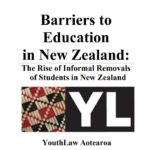
20.7MB, available from link above.
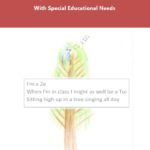
PDF, 1.1MB
DOWNLOAD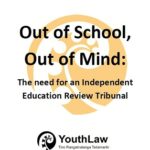
2.35MB, available from link above

These are the recent submissions we have made: